《国家管辖范围以外区域海洋生物多样性协定》会议在联合国总部召开
- Details
- Category: 世界热点新闻
- Published: Wednesday, 20 August 2025 17:30
- Written by Eager
منصة وسائل الإعلام المشاهير تبث الأخبار يوم الاثنين باللغة العربي
名人媒体平台星期二使用中文播报新闻
The celebrity media platform broadcasts news on Wednesday in English
La plateforme médiatique des célébrités diffuse les nouvelles le jeudi en français
Медийная платформа знаменитостей вещает новости в пятницу на русском языке
La plataforma de medios de celebridades transmite noticias el sábado en español

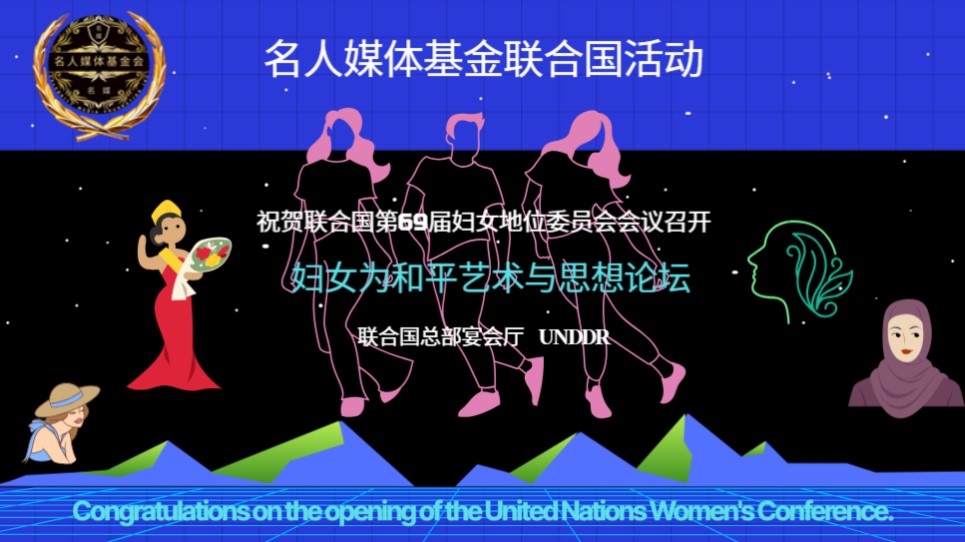


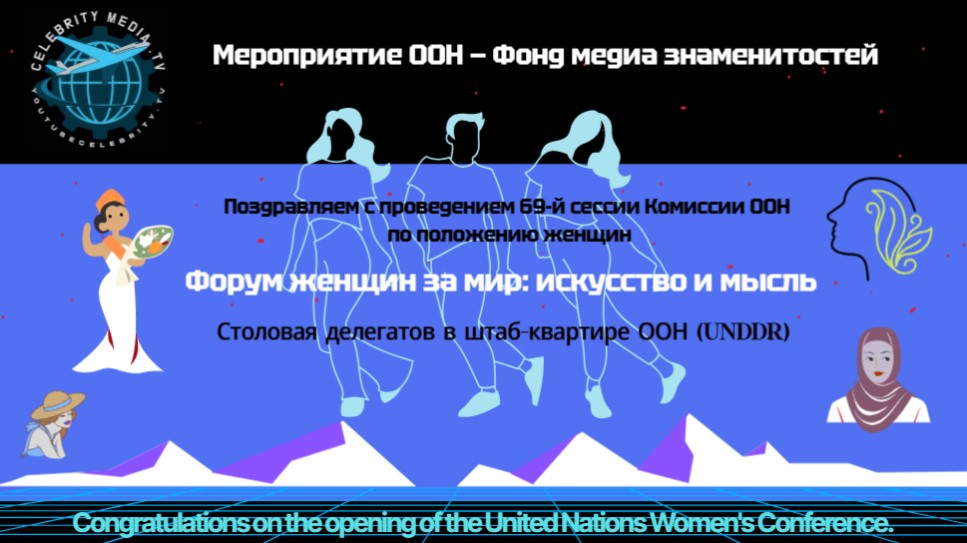



好的,我已将前面的时间标注去掉,并按照内容语义分段,整理如下:
非常感谢总统先生。亲爱的 Volomir,很高兴欢迎你回到布鲁塞尔。我很高兴今天在这里与你们一起参加我们的双边会议。我们刚刚开的会议,但当时我们将在自愿联盟。当然,我很高兴能够陪伴您和其他欧洲领导人,我们明天要在白宫与美国总统开会。
自从俄罗斯开始实施残酷的入侵,欧洲一直在乌克兰团结起来,我们会支持你,只要需要正义和持久的和平。这种和平必须通过力量实现。让我摸一下重点。
首先,我们必须拥有强大的安全保障,保护乌克兰和欧洲的重要担保权益。乌克兰必须能够维护其主权及其领土完整。乌克兰人不能受到任何限制武装部队,无论是与其他第三国或来自其他第三国的援助。正如人们常说,乌克兰必须成为“钢铁豪猪”,让潜在的入侵者难以下口。
我们欢迎特朗普总统的意愿,为第五条做出贡献,给予乌克兰的安全保障。以及自愿的联盟,包括欧盟在内的各方都已做好准备尽自己的一份力。我们知道,捍卫欧洲首先是我们的责任,我们一直在努力加快速度并扩大规模,增强欧洲的防御能力,通过安全机制确保国防需求。成员国和乌克兰的工业防御基础得到加强。我特别想到了无人机,这符合我们的共同利益。
同时,我们继续支持乌克兰加入欧盟的道路。这本身也是一种安全保障。
我的第二点是关于乌克兰领土问题,我们的立场明确:国际边界不能用武力改变。这些决定由乌克兰作出,而且只有乌克兰可以作出。这些决策必须在谈判桌上由乌克兰决定。
我的第三点,也是最后一点,只要乌克兰持续流血,欧洲将保持外交和经济压力,对俄罗斯施加特别大的制裁。我们将继续加强制裁。我们已经采取了 18 项措施,到目前为止,我们正在准备第 19 套方案,将于九月初发布。我们知道制裁是有效的,已经让俄罗斯陷入瘫痪。我们冻结了大量俄罗斯资产,用于支持乌克兰,并将继续对俄罗斯的战争经济施加压力,让普京总统不得不坐上谈判桌。
我们正在与 Volomir 合作,从这个意义上来说,特朗普总统和我们将在白宫的联合会议上讨论所有这些主题以及其他话题。这是一个充满挑战的时代。只有乌克兰才能选择自己的命运,但乌克兰始终可以信赖欧洲。
太感谢了。非常感谢。
非常感谢,亲爱的。谢谢,感谢你的支持。谢谢你的一切。这对我们所有人来说都非常重要。从战争一开始,你们就提供了支持。你们与我们站在一起,我们也与美国对话。这非常重要,华盛顿与我们同在。今天我们正在多个论坛进行讨论,我们将在华盛顿继续讨论。
亲爱的记者们,至关重要的是,欧洲现在要像二战时一样团结。就像 2022 年全面战争开始时一样。这种团结确实有助于实现真正的和平,而且必须保持坚强。
首先,我们必须停止杀戮。普京有很多要求,但我们并不了解全部情况。如果真的有那么多要求,那就需要时间来处理全部。这是不可能在武力压力下完成的。所以,必须停火并迅速采取行动,达成最终协议。我们稍后将在华盛顿继续讨论。普京不想停止杀戮,但他必须这样做。
其次,我们需要真正的谈判,这意味着他们可以从前线开始。接触线就是最好的起点。感谢欧洲的支持,我们非常感激。俄罗斯在顿涅茨克地区仍未获成功。
普京已经 12 年来未能实现目标。乌克兰宪法规定,不可能放弃领土或进行土地交易。由于领土问题如此重要,应该只由乌克兰和俄罗斯在三边谈判中讨论,即乌克兰、美国、俄罗斯。到目前为止,俄罗斯并没有表现出参与三边谈判的意愿。如果俄罗斯拒绝,那么必须采取新的制裁措施。
重要的是,美国同意与欧洲合作,为乌克兰提供安全保障。我们非常感谢美国总统发出这样的信号,这对整个欧洲来说都是一个重大变化。虽然还没有详细说明如何运作以及美国的角色,但这是积极的进展。我们需要类似于北约第五条那样的安全保障。加入欧盟也是乌克兰安全保障的一部分。
我们从特朗普总统那里听说,美国和普京也持同样看法。所以我们讨论了乌克兰和摩尔多瓦的入盟谈判。在我看来,如果发生分裂,自动意味着欧洲在乌克兰问题上存在分歧。欧洲必须保持共同而坚定的立场。
我们还讨论了防务问题。我们同意更加积极地参与安全等项目,我特别期待在无人机领域的支持。这是优先事项。其次,感谢你们的第 18 套制裁措施,也需要准备第 19 套,让俄罗斯看到我们的决心。俄罗斯的战略方向是反欧洲的,所以我们必须继续限制其潜力。
最后,我们谈到对乌克兰儿童的支持。我们有一个学校膳食计划,确保在战争时期每个孩子都能安全地获得一顿正常的热餐。学年即将开始,我请乌尔苏拉帮助改进这个计划。这是我们的孩子,这是我们的未来,一切为了他们。谢谢。
非常感谢两位总统。我们现在可以拍几张照片,然后进行几个提问。
第一个问题来自德国媒体。卡塔琳娜提问:总统们,你们是否同意特朗普总统的观点,即没有必要停火,而应该立即开始和平谈判?
回答:
我认为重要的不是术语,而是效果。最重要的是停止杀戮。无论称之为停火还是和平协议,关键是停止杀戮。应尽快举行三边会议:乌克兰总统、美国总统和俄罗斯总统,并设定明确的时间表。
我完全同意。早在三月份,美国总统就提议停火作为第一要素来停止杀戮,我们支持这一点。这是推动俄罗斯进入真正谈判的非常强有力的想法。现在我们听到另一个信号,我们必须详细讨论并与特朗普总统分享所有信息。
我们需要美国站在我们这边。特朗普总统表示,我们需要的不只是暂停战争,而是走向真正的、持久的和平。
最后一个问题来自乌克兰记者。问题主要关于地面部队和防空问题。由于时间关系,总统必须去参加另一场会议,因此记者会在此结束。
是否需要我帮您把这份整理好的稿子,直接转为更正式的新闻稿口吻?
2025年是联合国成立80周年的重要时刻,第六十九届联合国妇女大会的召开进一步推动全球女性赋权。在此背景下,名人媒体基金会的三位女性董事会成员共同发起一场国际论坛,以艺术与思想的交融展现女性赋权的无限可能,支持联合国在国际事务中的核心使命,推动世界和平与性别平等。
论坛将于2025年3月13日晚间在纽约联合国总部宴会厅举行,联合国妇女大会期间汇聚全球杰出的女性企业家、慈善家和艺术家,围绕国际公益、可持续发展与女性领导力展开深入探讨。
名人媒体的论坛活动完全以公益形式举办,旨在促进合作,激励女性参与国际事务,为世界和平贡献智慧与力量。

名人媒体基金会和平电视 PeaceTV 为世界和平和联合国国际事务服务

论坛发言嘉宾围绕以下核心话题进行:
本次活动期待志愿者、义工以及热心国际公益事业的个人和机构提供支持与赞助,共同推动联合国可持续发展目标(SDGs)的实现,让全球女性的声音更加响亮。名人媒体基金会诚邀所有关注世界和平与性别平等的人士携手参与,共创更加美好的未来!
根据联合国妇女大会期间更为严格的安检要求,所有参与活动的人员必须提前一个星期向联合国报备,以便活动的时候发给特别通行证。为此我们制作了参与人员的表格,需要四位志愿者义工人员,愿意者请在此报名填表,并且将个人简历发送至下列邮箱,This email address is being protected from spambots. You need JavaScript enabled to view it. 董事会一旦选中,会通过邮件通知本人。
有意愿支持赞助参与活动晚宴的人员,可填写提供与政府颁发的ID名字相同的姓名,点击这个链接参与,赞助200美金。
集体或机构愿意赞助支持参与晚宴活动的,以十个人为一组,在这个链接上面填写总金额,然后将十个人的正确姓名,列表发到我们的邮箱。This email address is being protected from spambots. You need JavaScript enabled to view it. 机构参与的,我们会把机构信息内容,印制在精美的活动画册上。
名人媒体基金会《妇女为和平艺术与思想论坛》志愿者报名与参加论坛晚宴截止日期一律在3月6日凌晨零点。
名人媒体国际传媒是一个可以在联合国发声的说出你的故事的国际平台!
联合国强大,世界更美好,我们需要联合国,我们需要未来!



Celebrity Media Commentator: The year 2025 marks the significant 80th anniversary of the United Nations. The 69th United Nations Women's Assembly is about to convene, encouraging women worldwide to actively engage in international public welfare and support the UN's mission to promote gender equality and peace. Against this crucial backdrop, the first Women Peacekeepers Conference was successfully held in New Delhi, India, from February 24 to 25, 2025, marking a new milestone in global peacekeeping efforts. The conference was co-hosted by the Government of India and the United Nations Peacekeeping Center (CUNPK) under the theme "Women in Peacekeeping: A Global South Perspective," attracting female peacekeepers from 35 troop-contributing countries. The Under-Secretary-General for Peace Operations, Jean-Pierre Lacroix, stated at the end of the conference that involving more women in peacekeeping is "indeed a way to enhance peacekeeping effectiveness." His statement has undoubtedly injected new momentum into the global process of gender equality.
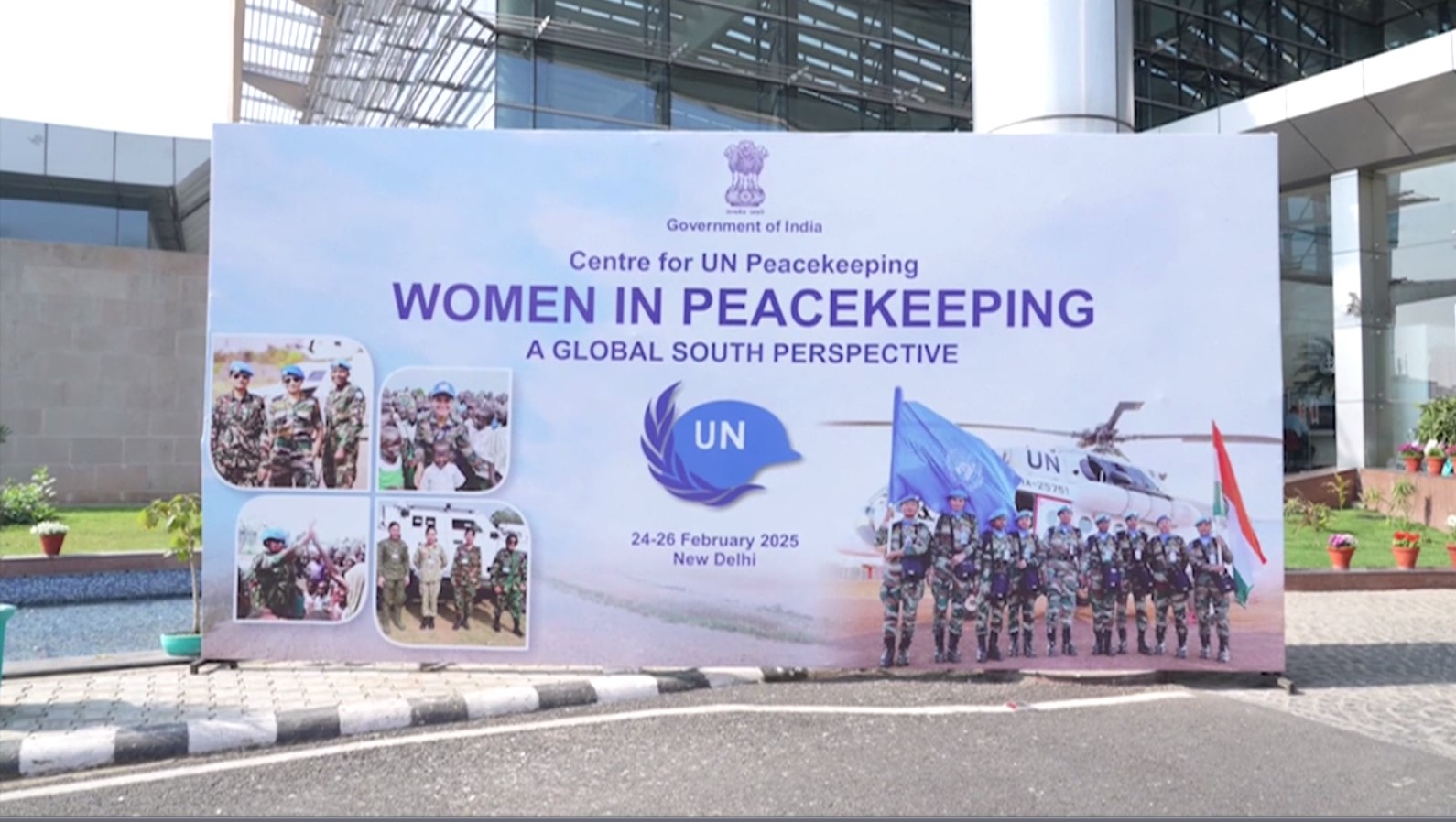
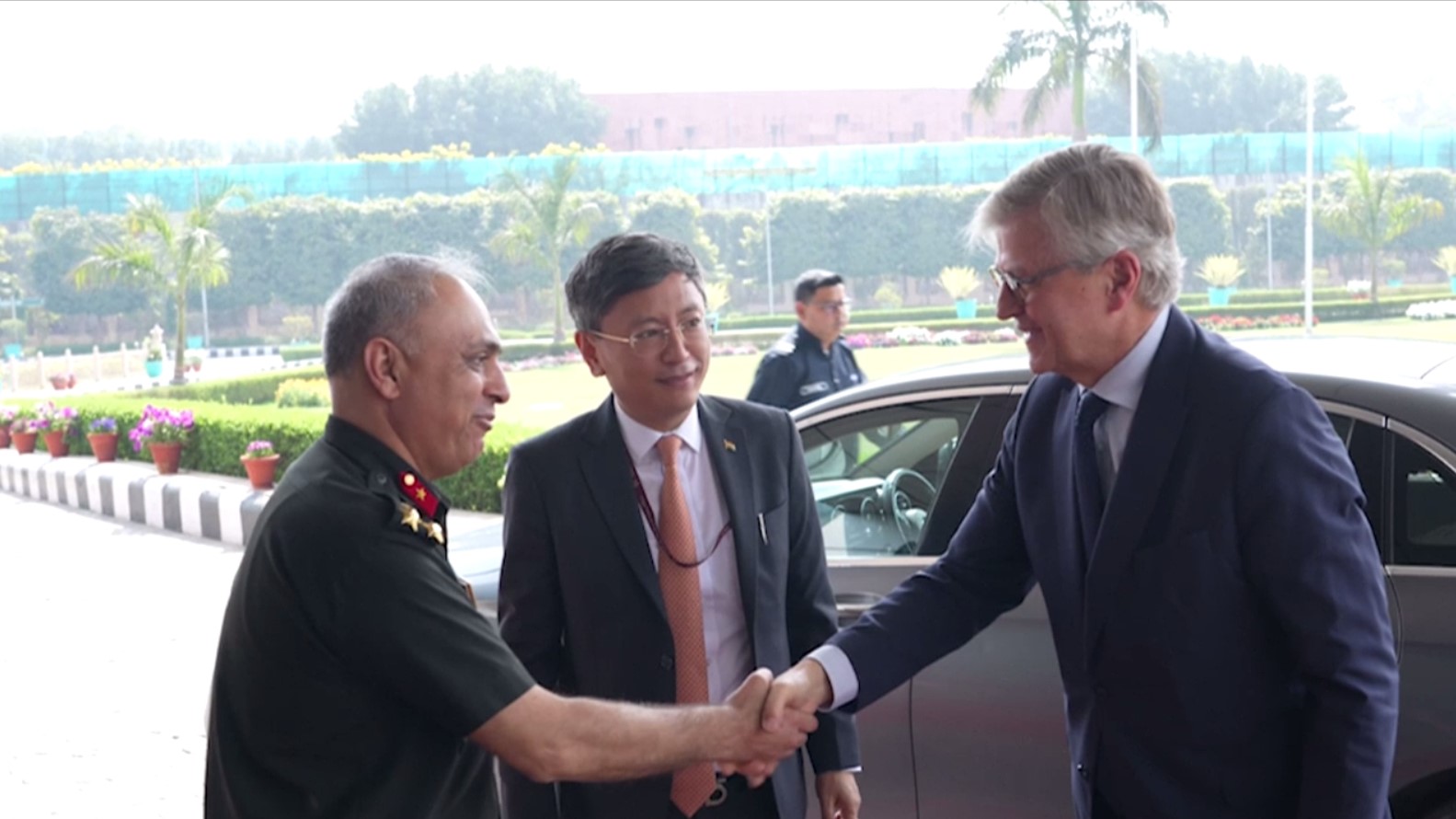
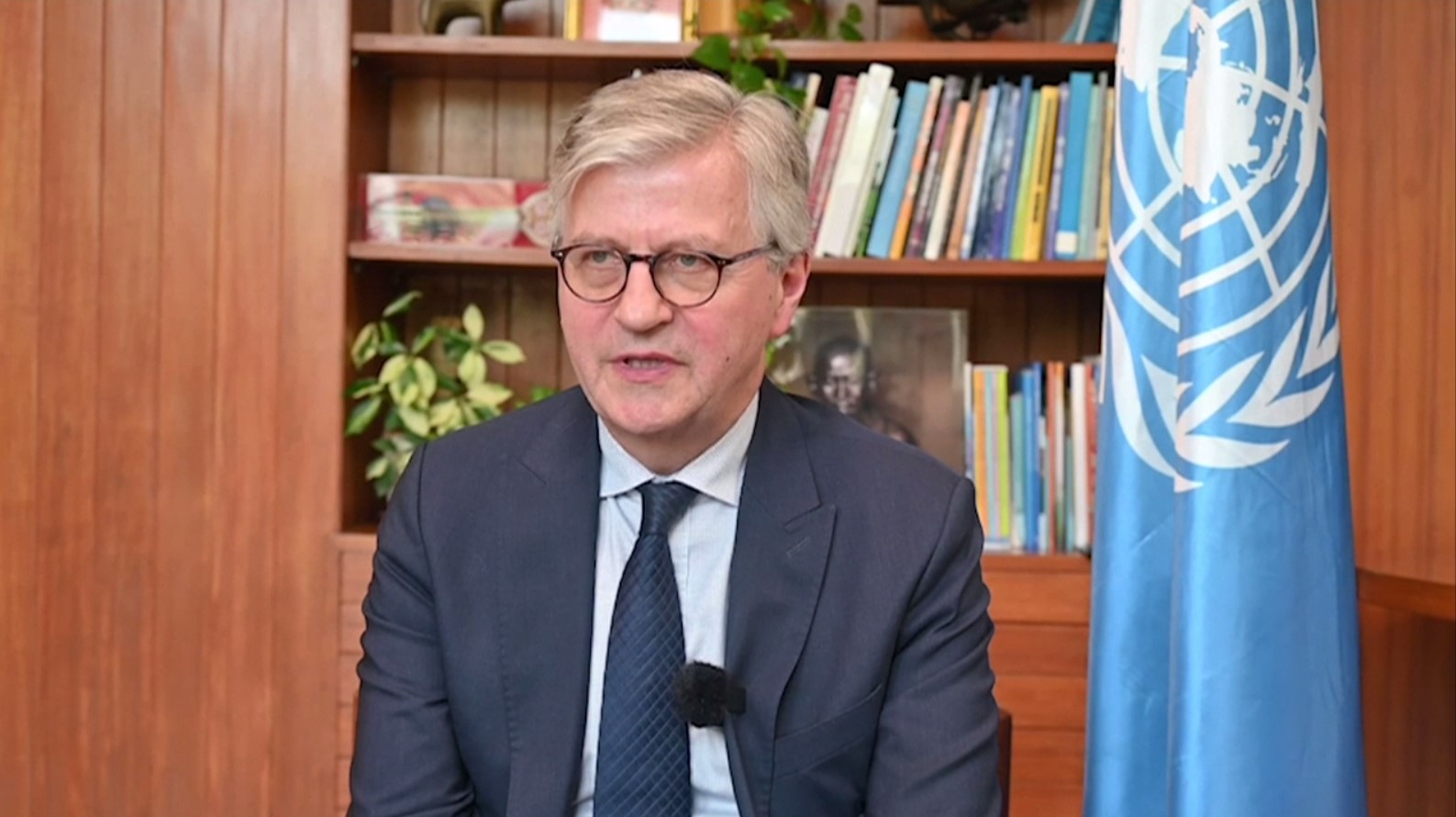
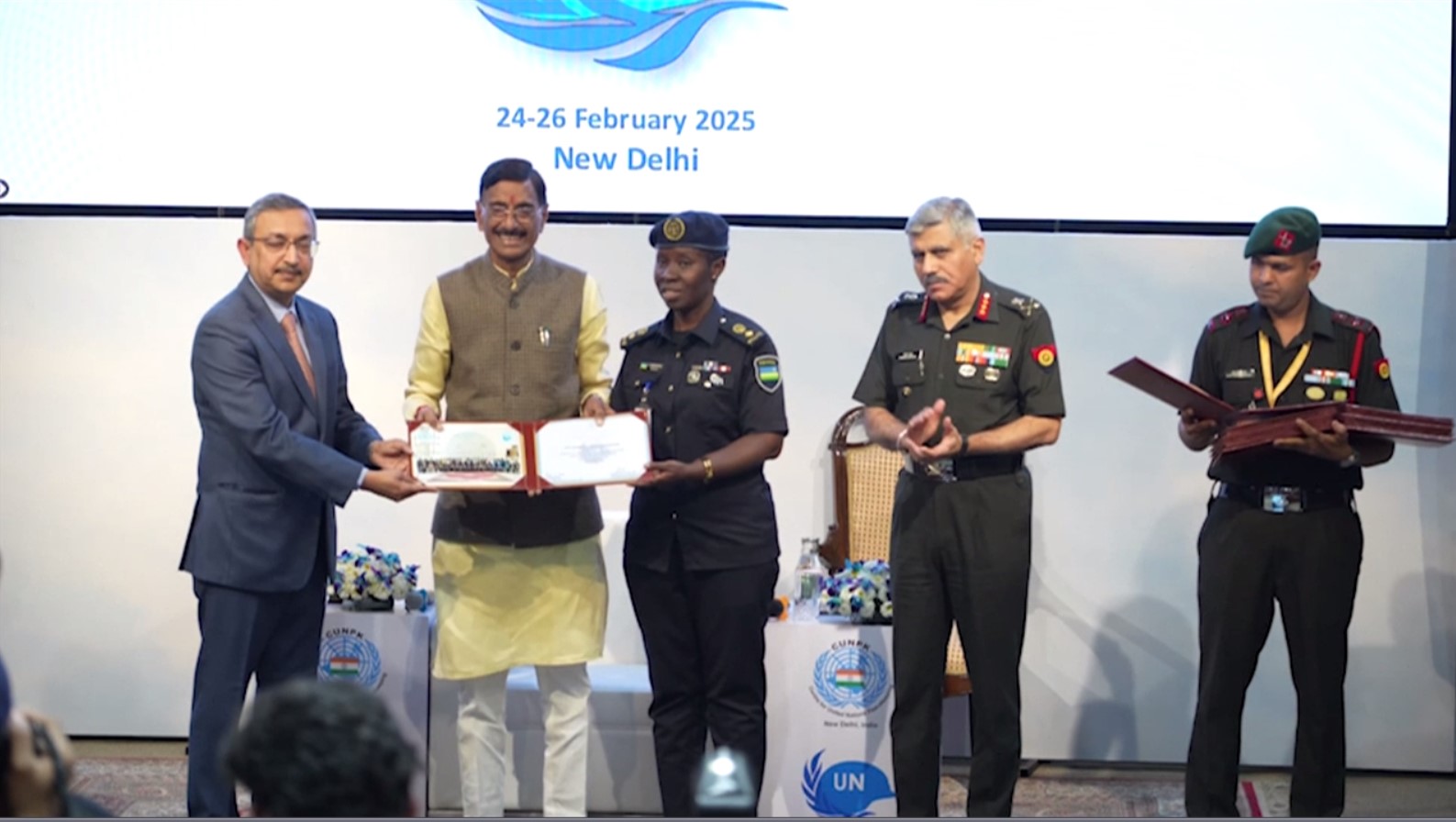
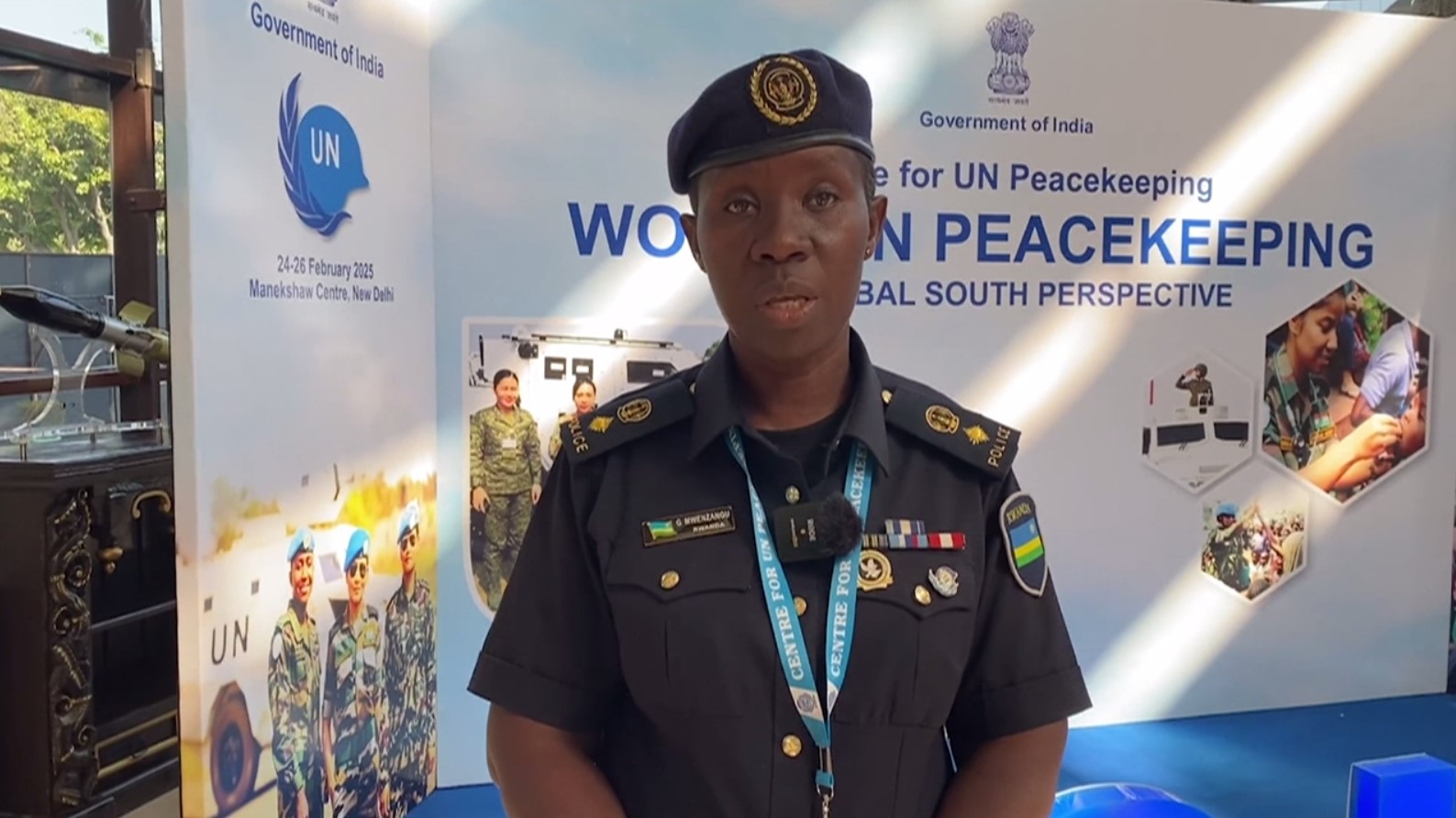

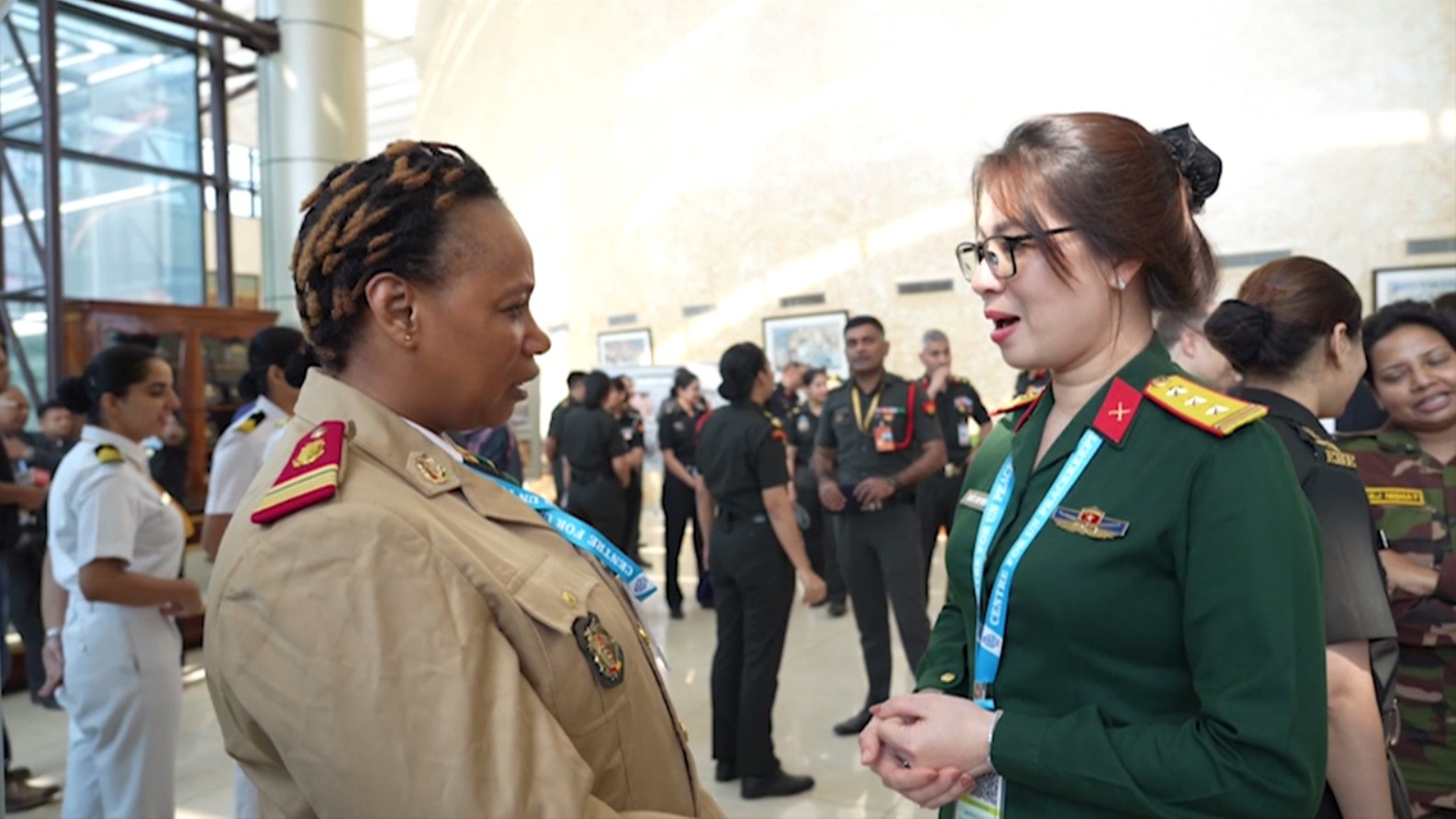

Women's participation is a key force in peacekeeping. The role of women in peacekeeping cannot be ignored. Lacroix pointed out that the challenges faced by peacekeeping lie not only in the complexity of the tasks but also in making the peacekeeping environment more friendly to both women and men. This view emphasizes the importance of improving facilities and optimizing environments, especially the quality and adaptability of camps. Lacroix also stated that the proportion of female officers is gradually increasing; however, greater efforts are still needed to achieve equal representation of women in senior positions.
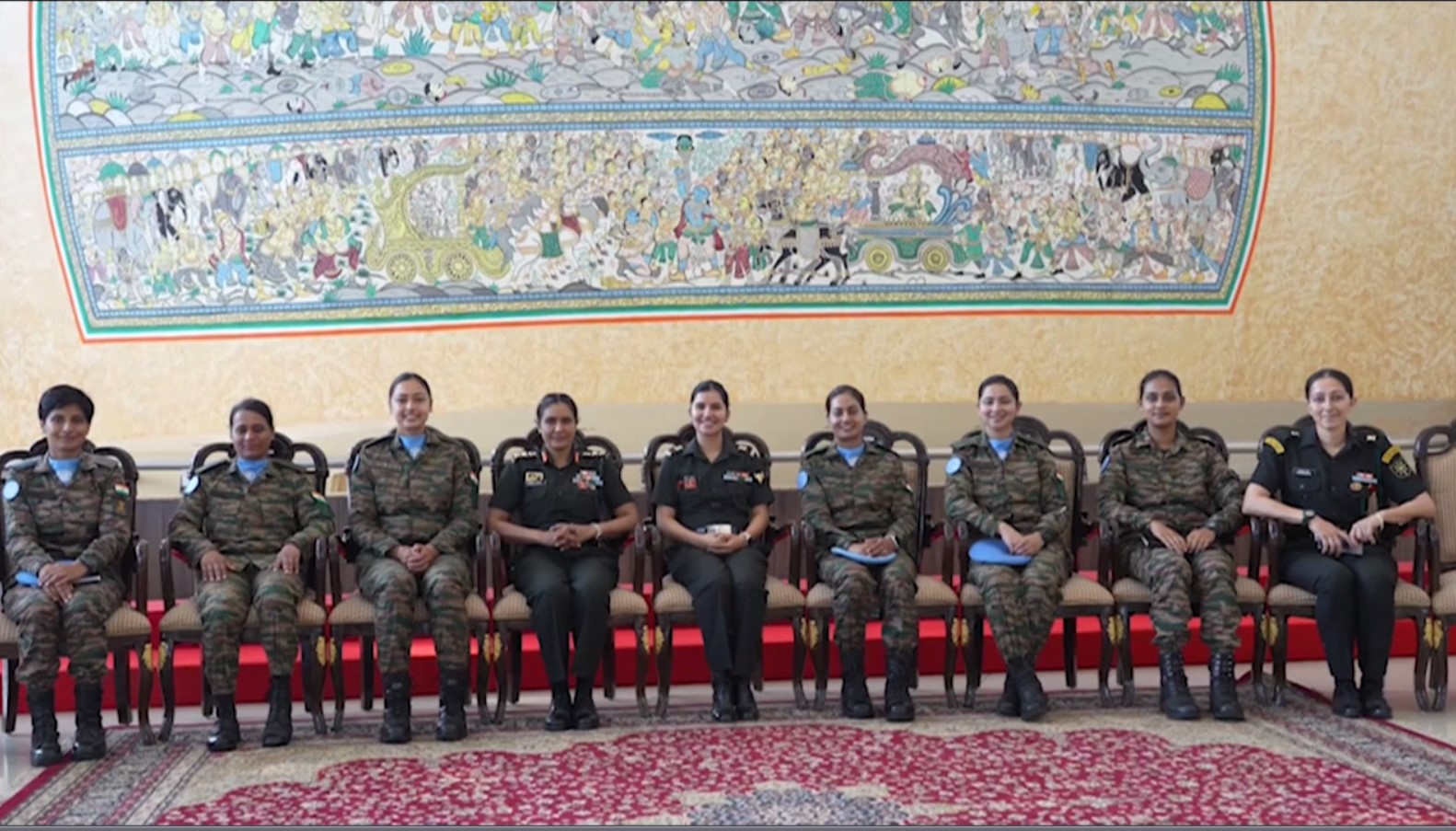
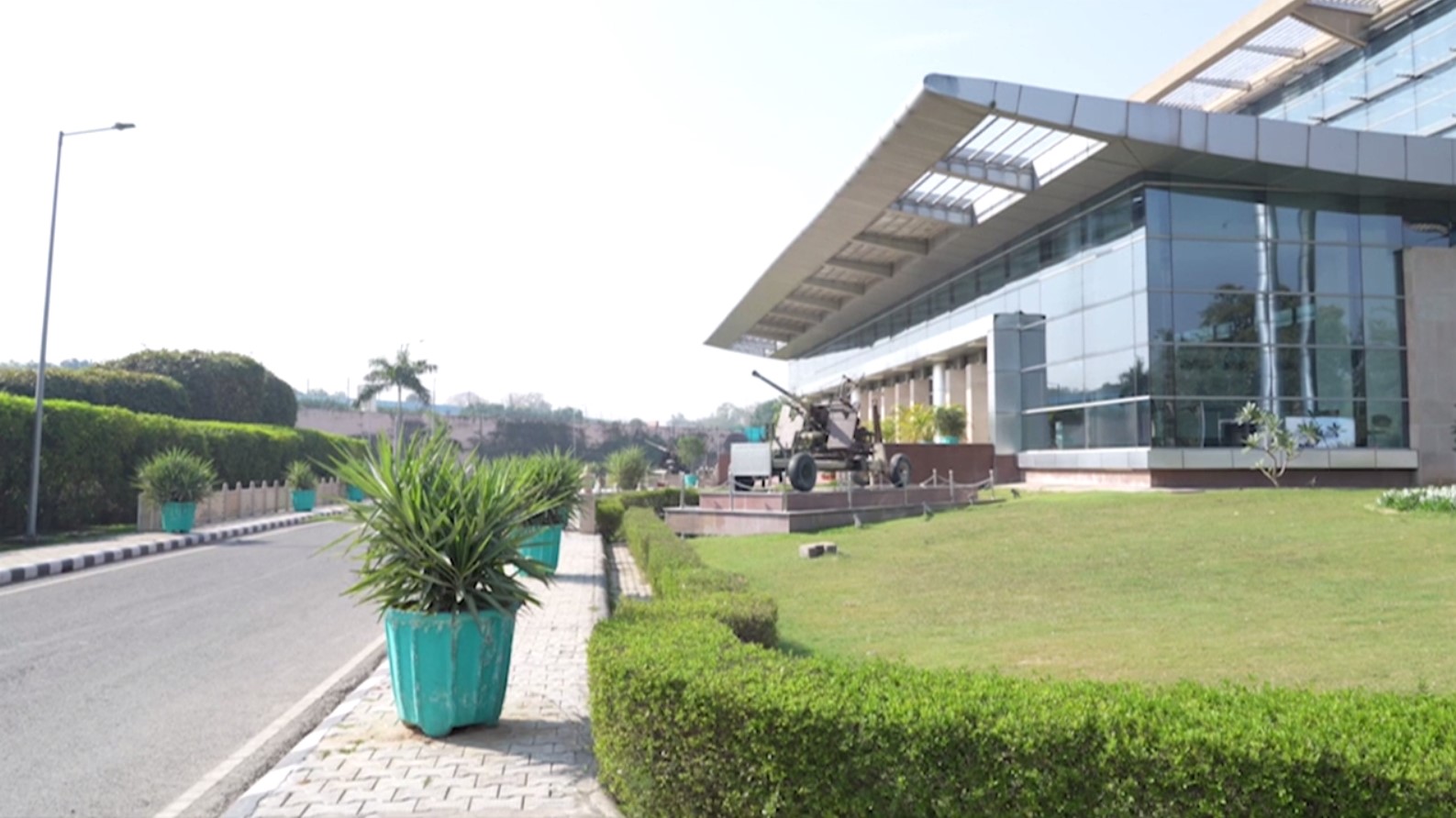
Future Outlook: Breaking Gender Barriers and Achieving Collective Security. To truly allow women to play a leadership role in peacekeeping, the international community still needs to overcome multiple obstacles. From cultural biases to institutional barriers, challenges remain on the path to the promotion of female officers. However, Lacroix's speech conveyed a clear message: involving more women in peacekeeping is not only a way to enhance effectiveness but also a necessary path to achieving gender equality and collective security.




维和行动负责人让-皮埃尔·拉克鲁瓦今天(11 月 19 日)向纽约记者详细介绍了过去 24 小时内联合国驻黎巴嫩维和部队遭到袭击的三起事件。

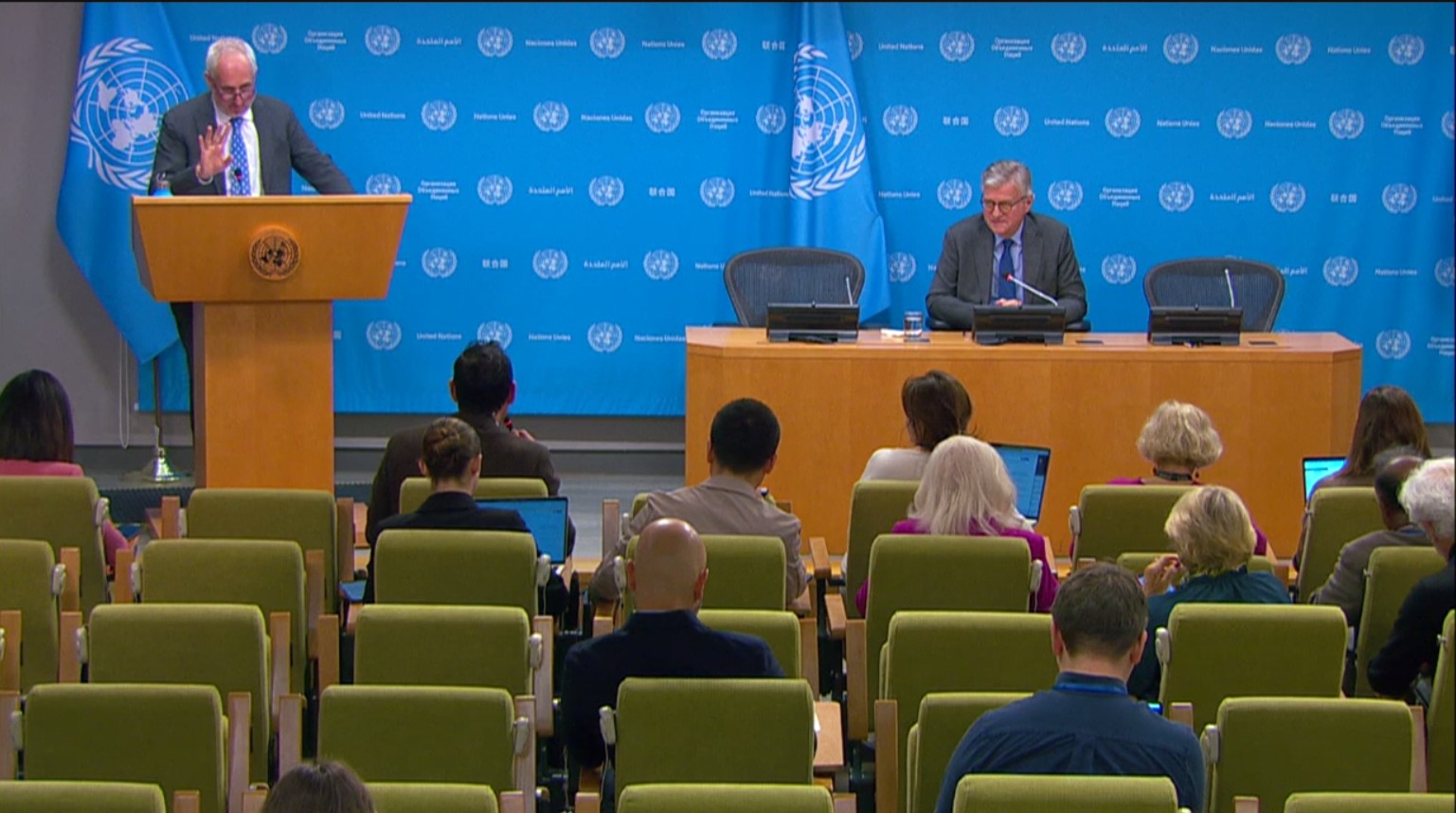
拉克鲁瓦说,“一支巡逻队从联合国第 91 号阵地向南前往联合国第 641 号阵地,在 Kherbet Selem 村遇到了路障。在绕过障碍物时,巡逻队遭到一名身份不明人员的轻武器射击”,但无人伤亡。
他继续说,在第二起独立事件中,“一枚炮弹在拉姆耶附近的联合国 542 号阵地爆炸,四名维和人员受轻伤。”
在第三起事件中,拉克鲁瓦表示:“位于沙马的联黎部队西区总部遭到五枚火箭弹袭击,并击中了维修车间。虽然维修车间遭到严重损坏,但没有维和人员受伤。”
主管和平行动的副秘书长表示希望包括美国和法国在内的各会员国的外交努力“能够取得积极成果”。

拉克鲁瓦说:“我们假设第 1701 号决议仍将是达成和解的政治框架。我相信各方都没有质疑该决议。但除了将第 1701 号决议作为政治框架之外,联黎部队的任何有意义的作用都必须再次取决于是否有坚定的承诺和执行第 1701 号决议的政治意愿,而我认为这包括对联黎部队行动自由的非常认真的承诺。”
当被问及袭击维和人员背后的故意性时,他说,“在某些情况下,这显然是故意的,因为我们掌握了相关因素。我们甚至有一些视频表明,这不仅仅是故意的。”

在其他情况下,拉克鲁瓦继续说,“很难说”,但他指出,“如果军事活动是在联合国阵地附近进行的,那么联合国维和人员就会处于危险之中。这会让他们处于危险之中。”
当被问及有关阿根廷维和人员撤出联黎部队的报道时,他说,“联黎部队驻黎巴嫩观察组四名军官”已撤出,并补充说“任何成员国都有权做出这一决定。”
拉克鲁瓦和黎巴嫩问题特别协调员珍妮娜·亨尼斯-普拉斯哈特预计将于今天下午在闭门磋商中向安理会通报 1701 报告

We have 230 guests and no members online